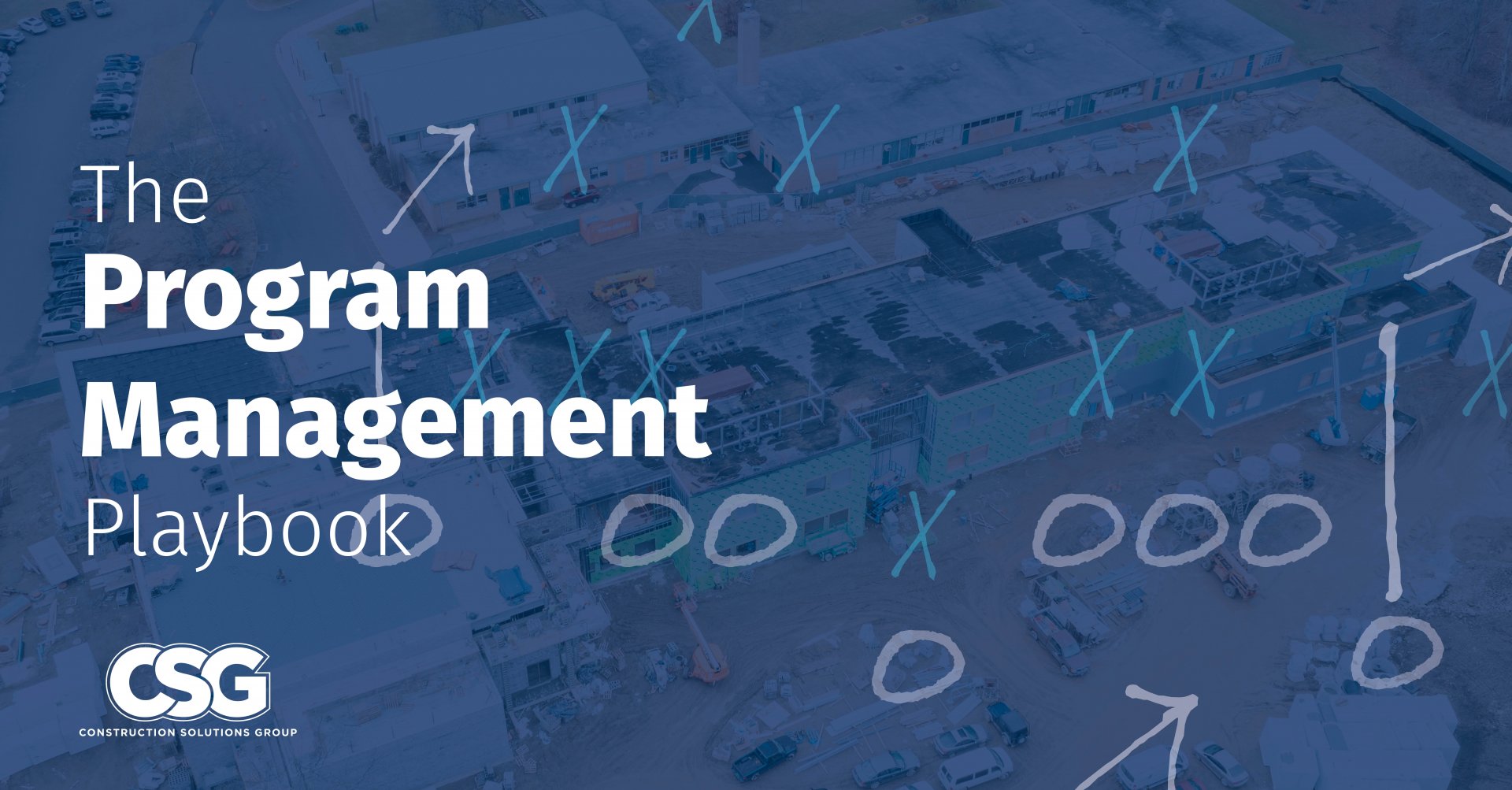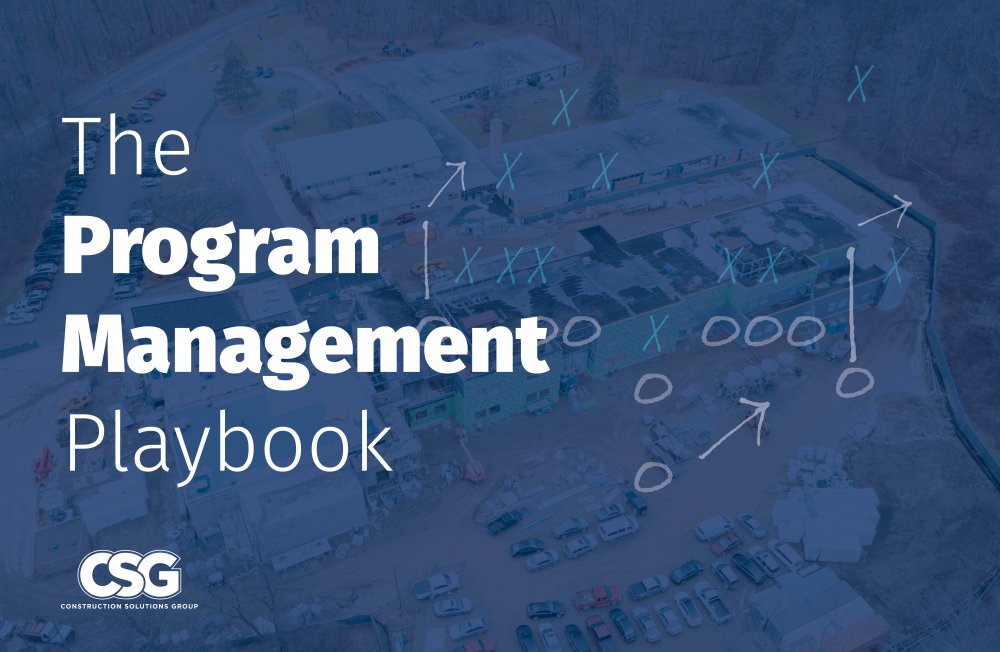The Program Management Playbook
November 16th, 2023

If you’re in the business of managing multi-year, multi-million dollar school construction programs, you better have a playbook handy. In this industry, where intricate architectural designs meet the raw reality of materials and labor in the field, there are always a lot of balls in the air. That’s where the art of program management comes into play. Efficiently overseeing concurrent projects from inception to completion requires a unique set of skills and strategies, and a nimble and adept team willing and able to apply their skills to use where needed in the best interest of the clients and projects.
These intricate endeavors involve multiple stakeholders, overlapping tasks, and hard deadlines. Without proper leadership, projects can quickly veer off track, leading to budget overruns, delays, and compromised quality. This is where effective project management steps in.
Check out some notes from our playbook below:
The foundation of any successful construction project lies in a clear and well-defined goal.
Project managers work closely with clients, architects, engineers, and other stakeholders to understand their vision and translate it into actionable objectives. This initial stage sets the tone for the entire program and ensures that everyone is on the same page.
Construction projects are like intricate puzzles.
Each piece must fit perfectly for the final picture to be complete. Project managers meticulously plan every aspect of the project, including resource allocation, scheduling, risk assessment, and contingency planning. A well-thought-out plan serves as part of our playbook, guiding the team through each phase of construction.
From labor to materials and equipment, resources are the lifeblood of construction projects.
Project managers ensure that resources are allocated effectively to avoid shortages or waste. By monitoring resource usage and adapting as needed, they keep the project on track and within budget.
Communication is key.
Project managers act as bridges between architects, engineers, contractors, and clients, fostering effective communication channels. Regular updates, meetings, and transparent reporting keep everyone informed and aligned.
Even the best laid plans are subject to change.
Project managers constantly monitor the project's progress, comparing it to the established plan. Deviations and obstacles are addressed promptly, and adjustments are made to ensure the project stays on course.
Project management in construction is an intricate dance that requires a blend of technical expertise, leadership skills, and adaptability.
From the initial blueprint to the final nail, project management lays the foundation for a construction project's success by keeping it organized, efficient, and aligned with the client's vision. In a field where every detail matters, effective project management is the compass that guides the construction journey to a triumphant completion.



